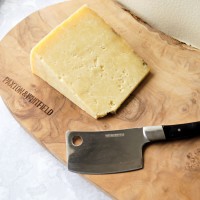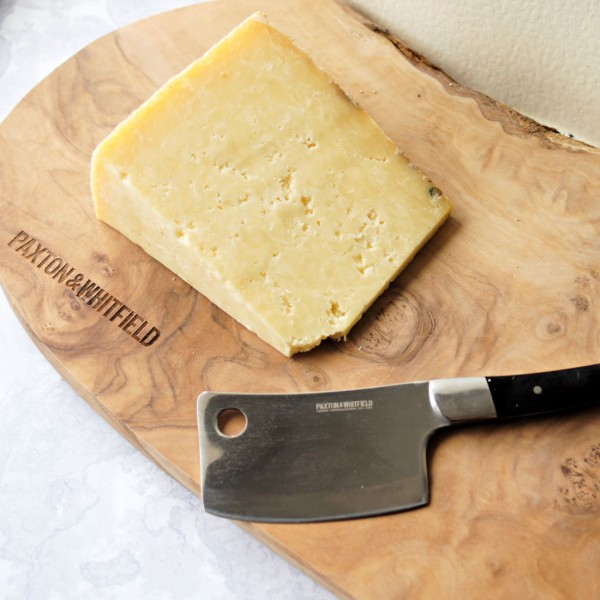Lancashire - Kirkham
Farmhouse Lancashire made using a traditional two day curd method. Open textured, buttery, hint of sharpness.
Key Facts
- CountryEngland
- RegionLancashire
- FlavourMild and buttery
- Type of MilkCow
- PasteurisationUnpasteurised
- Vegetarian RennetNo
- OrganicNo
Store & Serve
All cut cheeses are cut to order and will have approximately 12 days shelf life on them from the date the order is despatched. Due to high demand, it is occasionally necessary for us to substitute items in orders for an alternative. We will always endeavour to choose an alternative, which is the most similar to the item you have selected and of equal or higher value for no additional charge.
- StorageKeep refrigerated.
- Instructions for useServe at room temperature.
- Recommended DrinkReal Ale
Nutrition
- IngredientsCows' Milk, Salt, Rennet, Dairy Cultures (Milk)
- AllergensMilk
Nutritional Information
- Typical Valuesper 100g
- Energy kJ1622
- Energy kcal392
- Fat34
- Of which saturates22.8
- Carbohydrates3.2
- Of which sugars>0.1
- Protein21.4
- Salt1.71
Paxton & Whitfield Ltd, 93 Jermyn Street, London SW1Y 6JE
These summary details have been prepared for information purposes only. While we have taken care in preparing this summary and believe it is accurate, it is not a substitute for reading the product packaging and label prior to use. Paxton & Whitfield is unable to accept liability for any incorrect information. If you require specific advice, please contact our mail order team on 01451 823460 or email sales@paxtonandwhitfield.co.uk.
Buttery British Kirkham's Lancashire Cheese
Our Lancashire is made by Graham Kirkham - son of the original 'Mrs Kirkham', in the "black land of Fylde" north of Preston in Lancashire. The pasture land is near the Irish sea and the tasty quality of the milk and resulting cheese is said to be due to the wind-driven sea salt which impregnates the pastures.
This is where the Kirkham's herd of 100 Freisian cows can be found. Mrs Ruth Kirkham began making Lancashire Cheese at Beesley Farm over 30 years ago. This was a skill she had been taught by her own mother and has now passed onto her son Graham, making him the third generation of cheese maker in her family. In the early days Ruth and husband John started the day with the first milking of their herd and then the milk was pumped straight into a small vat in their little dairy next door. This was then turned into cheese. They had only two presses and would make four 20kg cheeses a day and these were waxed and sold monthly to a wholesaler. After the demise of Mrs Kirkhams's original wholesaler in the mid eighties, she started to supply customers directly and also changed the finished coating of her cheeses from wax to cloth bound and then buttered them. This helped the cheese mature better and to keep the flavour and texture.
July 2020: "What a joy! The package was carefully prepared with chiller packs. The cheeses were amazing - particularly Mrs Kirkham's Lancashire - a cheese I had never heard of before but absolutely delicious. If you like your cheeses full of flavour and like to try different things along side favourites like Stilton, this is the company to choose. 11 out of 10 from me.”
Cheese weights ordered in multiple quantities are always cut as one large piece, unless otherwise requested in the delivery notes section of checkout
Read More






